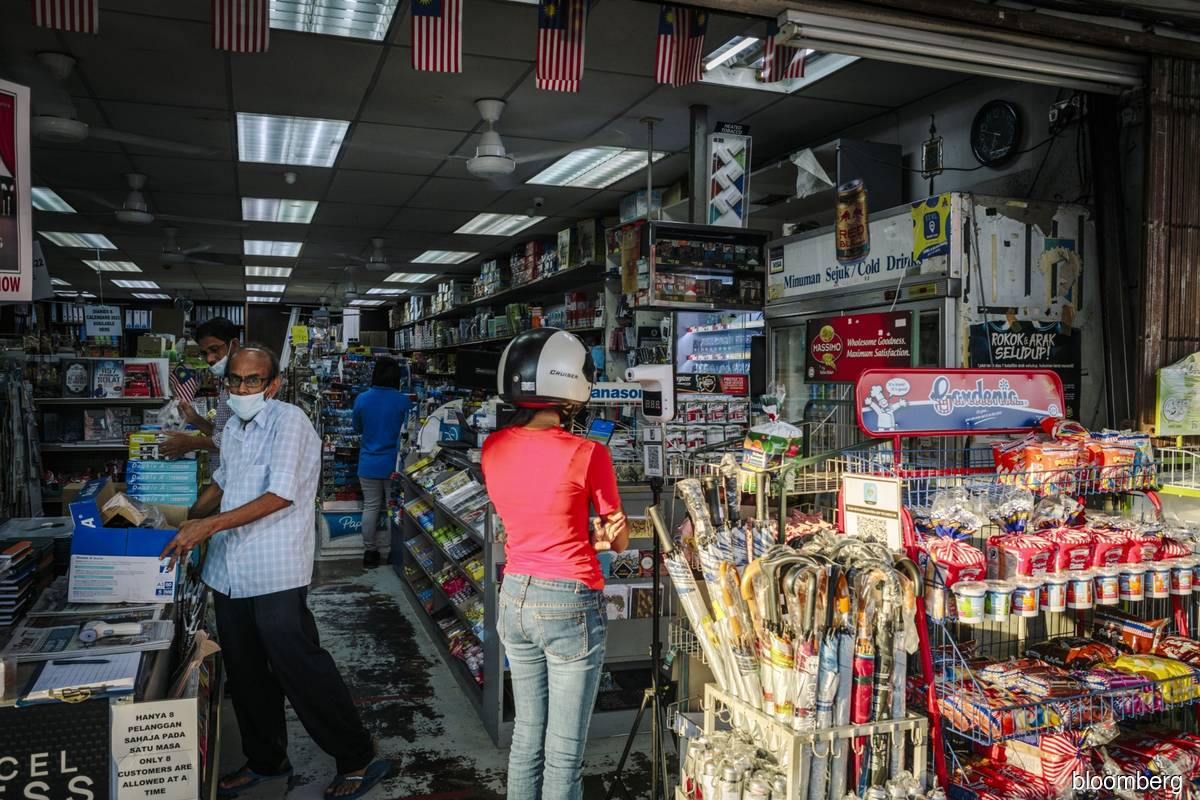The sudden price hike of cooking oil — what is the issue?
 The sudden hike in the price of cooking oil is of concern to all Malaysians, not only those from the bottom 40% income group (B40) and M40 who spend most of their income on food. Although the household expenditure on cooking oil is only about 0.42% of total household expenditure on food, the increase in oil prices affects prices of other food items, in particular for food away from home.
The sudden hike in the price of cooking oil is of concern to all Malaysians, not only those from the bottom 40% income group (B40) and M40 who spend most of their income on food. Although the household expenditure on cooking oil is only about 0.42% of total household expenditure on food, the increase in oil prices affects prices of other food items, in particular for food away from home.
食用油价格的突然上涨引起了所有马来西亚人的关注,不仅是那些收入最低的 40%(B40)和 M40 的人,他们大部分收入都花在了食物上。虽然家庭食用油支出仅占家庭食品总支出的 0.42% 左右,但油价上涨会影响其他食品的价格,尤其是外卖食品的价格。
Malaysia is the second largest producer of palm oil. Logically, there should not be a price hike amid plenty. Further, cooking oil is subsidised.
马来西亚是第二大棕榈油生产国。从逻辑上讲,不应该有大量的价格上涨。此外,食用油得到补贴。
The PEMUDAH Technical Working Group on Food Cost (TWGFC) led by Prof Emerita Tan Sri Dr Sharifah Hapsah Syed Hasan gathered industry experts, regulators, government agencies and researchers to analyse the supply chain of cooking oil, and to identify the possible parts that contribute to the price hike.
由 Emerita Tan Sri 教授 Sharifah Hapsah Syed Hasan 博士领导的 PEMUDAH 食品成本技术工作组 (TWGFC) 聚集了行业专家、监管机构、政府机构和研究人员,分析食用油供应链,并确定可能导致价格上涨。
Out of the 18 million tonnes or so of crude palm oil (CPO) produced yearly, only about one million tonnes are allocated for cooking oil. Hence, only a small fraction (5% to 7%) of CPO is processed into cooking oil. Out of the total, 720,000 tonnes are dedicated for subsidised cooking oil, which works out to be 60,000 tonnes per month. The rest (300,000 tonnes) is unsubsidised cooking oil sold in 1 kg to 5kg bottles and 17kg tins.
在每年生产的 1800 万吨左右的粗棕榈油 (CPO) 中,只有大约 100 万吨用于食用油。因此,只有一小部分(5% 至 7%)的 CPO 被加工成食用油。其中,720,000 吨专门用于补贴食用油,相当于每月 60,000 吨。其余(300,000 吨)是无补贴食用油,装在 1 公斤至 5 公斤瓶装和 17 公斤罐装中。
In terms of costs, 70% to 80% of the cooking oil cost structure is due to the purchase of CPO. The rest (20%) is divided into processing, packaging, warehousing and retailing. Hence, the price of cooking oil is highly dependent on the price of CPO. Since the amount used for cooking oil is only about 5%, it makes sense for the government to intervene with industry subsidies to keep the price affordable.
在成本方面,食用油成本结构的 70% 至 80% 是由于采购原棕油。其余(20%)分为加工、包装、仓储和零售。因此,食用油的价格很大程度上取决于原棕油的价格。由于食用油的用量仅为 5% 左右,因此政府通过行业补贴进行干预以保持价格实惠是有道理的。
Currently, the subsidy is only for the quota of 60,000 tonnes per month, which is packed in 1kg polybags. Statistics show that per capita consumption of cooking oil is 1kg to 1.5 kg per month (which is above the national dietary guideline of 620gm/month). Assuming that everyone consumes this amount of cooking oil per month, the total required for the B40 and M40 is only about 26,000 tonnes per month. Hence, we produce enough subsidised cooking oil for B40 and M40 — in fact, enough for the whole population of Malaysia, with a surplus even.
目前,补贴仅针对每月6万吨的配额,以1公斤塑料袋包装。统计显示,人均食用油消费量为每月1公斤至1.5公斤(高于国家膳食标准620克/月)。假设每个人每月消耗这么多食用油,那么 B40 和 M40 的总需求量仅为每月 26,000 吨左右。因此,我们为 B40 和 M40 生产了足够的补贴食用油——事实上,足以满足马来西亚全体人口的需求,甚至还有盈余。
Where is the problem then? The TWGFC believes the packing of cooking oil into 1kg polybags may be the source of the problem. The quota for packing is given to selected packers. We need to understand better how they are chosen, and how the subsidised packets are distributed to the targeted groups. Leakages in the system may have led to selling of subsidised cooking oil across the border. There is also concern that subsidised cooking oil in polybags is repacked into unsubsidised bottles. A more comprehensive approach in selecting packers and the right mechanism of distribution should be introduced to ensure the targeted groups enjoy the government assistance.
那么问题出在哪里呢?TWGFC 认为,将食用油装入 1 公斤的塑料袋可能是问题的根源。包装配额分配给选定的包装商。我们需要更好地了解它们是如何选择的,以及补贴包是如何分配给目标群体的。该系统的泄漏可能导致跨境销售补贴食用油。还有人担心塑料袋中的补贴食用油被重新包装到无补贴的瓶子中。采取更加全面的包装员选择方式和合理的分配机制,确保目标群体享受政府帮助。
The workshop was attended by the Malaysian Palm Oil Board, FGV Holdings Bhd, the National Action Council on Cost of Living, the Department of Statistics Malaysia, and University Putra Malaysia. Malaysia Productivity Corporation, which is also the secretariat to PEMUDAH, serves as a catalyst to bridging the gap between the private and government sectors towards improving productivity and competitiveness of the nation.
马来西亚棕榈油委员会、FGV Holdings Bhd、国家生活成本行动委员会、马来西亚统计局和马来西亚博特拉大学出席了研讨会。马来西亚生产力公司也是 PEMUDAH 的秘书处,它是弥合私营部门和政府部门之间差距的催化剂,以提高国家的生产力和竞争力。
